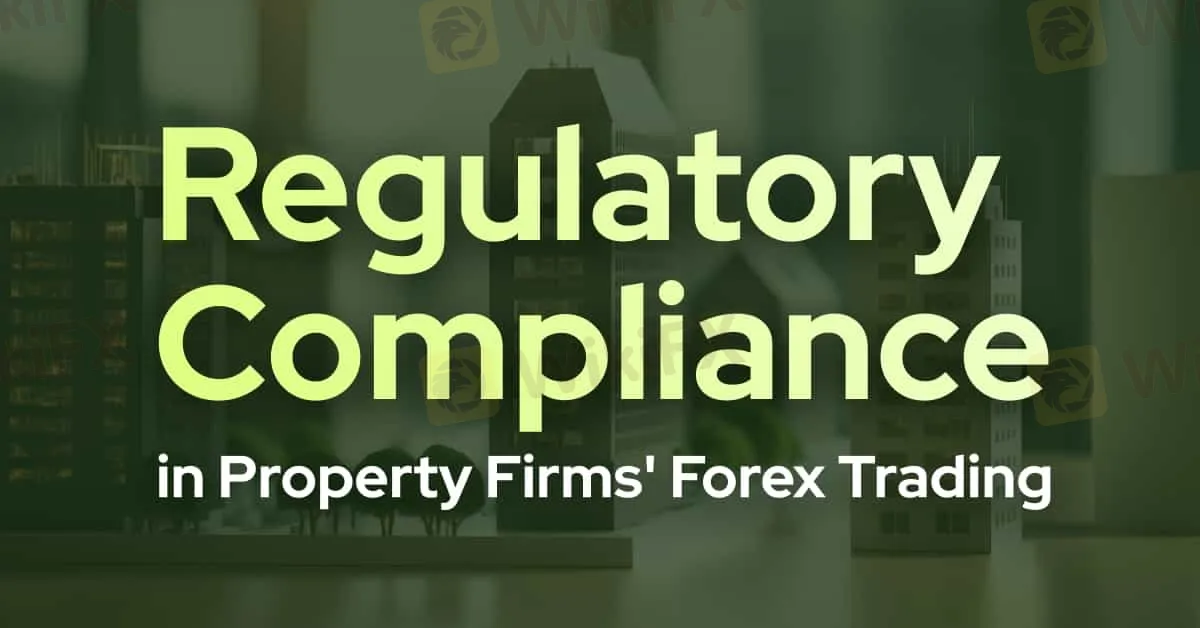简体中文
繁體中文
English
Pусский
日本語
ภาษาไทย
Tiếng Việt
Bahasa Indonesia
Español
हिन्दी
Filippiiniläinen
Français
Deutsch
Português
Türkçe
한국어
العربية
Regulatory Compliance in Property Firms' Forex Trading
Abstract:In the dynamic world of forex trading within property investment portfolios, regulatory compliance stands as the bedrock ensuring investor protection and market integrity. Property firms engaged in forex trading on behalf of their clients must navigate a complex regulatory landscape to safeguard their operations and uphold industry standards. This article delves into the critical importance of regulatory compliance in property firms' forex trading activities, shedding light on the regulatory frameworks and compliance strategies employed by these firms.

In the dynamic world of forex trading within property investment portfolios, regulatory compliance stands as the bedrock ensuring investor protection and market integrity. Property firms engaged in forex trading on behalf of their clients must navigate a complex regulatory landscape to safeguard their operations and uphold industry standards. This article delves into the critical importance of regulatory compliance in property firms' forex trading activities, shedding light on the regulatory frameworks and compliance strategies employed by these firms.
Regulatory Landscape:
Property firms operating in the UK and Europe encounter a robust regulatory environment overseen by regulatory authorities such as the Financial Conduct Authority (FCA) and the European Securities and Markets Authority (ESMA). These regulatory bodies impose stringent requirements and standards on firms engaged in forex trading to ensure transparency, fairness, and investor protection. Compliance with regulatory guidelines is essential for property firms to gain and maintain the trust of their clients while operating within legal boundaries.
Compliance Requirements:
Compliance with regulatory requirements entails adherence to a multitude of rules and regulations governing various aspects of forex trading. Property firms must obtain necessary licenses and authorizations from regulatory authorities to offer forex trading services legally. They are also obligated to implement robust risk management frameworks to mitigate currency risks and safeguard clients' investments. Additionally, property firms must adhere to strict reporting and disclosure requirements, providing clients with comprehensive information about their forex trading activities, risks involved, and potential returns.
Regulatory Challenges:
Navigating regulatory compliance poses significant challenges for property firms engaged in forex trading. The regulatory landscape is constantly evolving, with frequent updates and amendments to existing regulations. Property firms must stay abreast of regulatory changes and ensure timely implementation of compliance measures to avoid regulatory scrutiny and potential penalties. Moreover, compliance with cross-border regulations adds another layer of complexity, especially for property firms operating across multiple jurisdictions within Europe.
Compliance Strategies:
To effectively manage regulatory compliance, property firms employ a range of compliance strategies and best practices. This includes establishing robust internal compliance teams tasked with monitoring regulatory developments, conducting regular compliance audits, and ensuring adherence to regulatory guidelines. Collaborating with legal experts and compliance consultants also enables property firms to navigate regulatory complexities effectively and implement compliance measures tailored to their specific business needs.
Conclusion:
In conclusion, regulatory compliance is paramount for property firms engaged in forex trading on behalf of their clients. By adhering to regulatory requirements, property firms not only safeguard their operations and reputation but also ensure investor protection and market integrity. Amidst a rapidly evolving regulatory landscape, property firms must remain vigilant, proactive, and adaptable to regulatory changes to sustain their forex trading activities successfully. By prioritizing regulatory compliance, property firms can instill confidence and trust in their clients while contributing to a thriving and compliant forex trading ecosystem.
Finding More Information:
For those interested in learning more about regulatory compliance in forex trading and property investment, WikiFX serves as a valuable resource. WikiFX provides comprehensive information and ratings on forex brokers and investment firms, helping investors make informed decisions and navigate regulatory landscapes effectively. To explore further, visit WikiFX's website.

Disclaimer:
The views in this article only represent the author's personal views, and do not constitute investment advice on this platform. This platform does not guarantee the accuracy, completeness and timeliness of the information in the article, and will not be liable for any loss caused by the use of or reliance on the information in the article.
Read more

The Ultimate Guide to Automated Forex Trading in 2025
Modern markets are revolutionized by automated trading systems, which now execute 70-85% of all transactions. These advanced automated trading software solutions, commonly called trading robots or Expert Advisors (EAs), leverage algorithmic precision for automatic trading across forex, stocks, and commodities 24/7. By removing emotional interference and executing trades in microseconds, auto forex trading platforms create fair opportunities for all market participants. For those new to automated trading for beginners, these systems provide disciplined, backtested strategies while significantly reducing manual effort.

How Reliable Are AI Forex Trading Signals From Regulated Brokers?
Discover how reliable AI Forex trading signals are and why using a regulated broker boosts their effectiveness. Learn key factors to evaluate accuracy and enhance your trading.

Top Currency Pairs to Watch for Profit This Week - March 31, 2025
Discover the top 5 currency pairs to trade for profit this week, March 31, 2025—USD/JPY, EUR/USD, GBP/USD, AUD/USD, USD/CHF—with simple strategies and best times.

AI-Powered Strategies to Improve Profits in Forex Trading
Boost Forex profits with AI: predictive analytics, real-time automation, and smart risk management strategies for sharper trades and fewer losses.
WikiFX Broker
Latest News
How Crypto Trading Transforms FX and CFD Brokerage Industry
UK would not hesitate to retaliate against US tariffs - No 10 sources
FCA Warns Against 10 Unlicensed or Clone Firms
CySEC Warns Against 14 Unlicensed Investment Websites
Top Currency Pairs to Watch for Profit This Week - March 31, 2025
Will natural disasters have an impact on the forex market?
Philippines Deports 29 Indonesians Linked to Online Scam Syndicate in Manila
Navigating the Intersection of Forex Markets, AI Technology, and Fintech
Exposed: Deceptive World of Fake Trading Gurus – Don’t Get Fooled!
AI-Powered Strategies to Improve Profits in Forex Trading
Currency Calculator







